Fallout 3
Out, believe it or not, in the fall.
Given that the developer is responsible for the most successful Western-style RPG of recent years, Oblivion, it was a little surprising, during Fallout 3's demonstration, to get the sense of a team with something to prove. While there's much about FO3 that recalls Oblivion, there are also regular elements that arise as if to signify, "You know - we're good enough to deal with a legend as big as Fallout. Watch this." In itself, this is a tad touching. A team like Bethesda would probably be justified in going, "Damn the lot of you - our way is the best way." The result is something that - on these impressions - seems to be the next logical step on from Oblivion, while infusing as much of what made Fallout Fallout as they reasonably can.
While they showed a lot more afterward, the sensation's most apparent in the opening sequence. The game's central plot - though it allows you to ignore it completely and go and do your own thing - is your Liam Neeson-voiced dad disappearing, and you being sent out into the wastes to try and find him. While having that particular voice be your dad buys significant sympathy, you can easily see this failing to engender enough motivation if you start the game and are given a plain order to Go Get Pops. I don't know Pops! Why should I care?
So, Bethesda's stroke of inspiration is a return to the old RPG standard of moving through your childhood playing out key events and you making decisions which shape your future. Of course, with modern technology this has mutated from simple question-and-answer to a walkthrough of life in the radioactive shelter, the Vault, in which you observe life at birth, one, ten, sixteen and - the start of the game - nineteen years old. It's ten that made me start to see the message-to-gamer most.
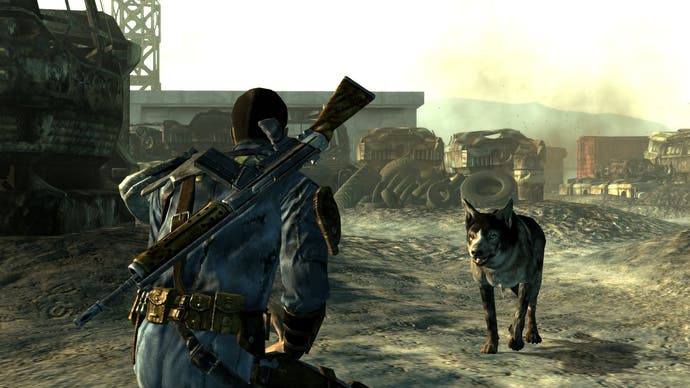
It's at your birthday party, and you've just received your Pip Boy wrist terminal and promised your first work detail, but between the amusement of robots ruining birthday cakes, you get your initial conversations. The first one is standard enough (though it introduces the concept of lying), but the next one we're shown is with a bullying peer by the name of Butch, where you appear to have at least six cake-related options available; everything from a diplomatic, sharing-it-fifty-fifty option, to the openly perverse provocation of spitting in it and then giving it him. Bethesda's Pete Hines, demoing, stresses that these options will all play out differently down the line. The point is to show that we're a long way from the "Yes, I'll help you"/"Yes, I'll help you for three pounds fifty and a cheeseburger"/"I WILL KILL YOU AND TAKE YOUR STUFF" conversation options with which most modern RPGs satisfy themselves. Hines and co. have talked about the game being a much more dense conversational game than Oblivion, and this is them showing how they're walking the walk as well as talking the post-apocalyptic talk. About talk.
There's some other neat stuff in the opening, too: any game which starts you between your mother's legs, looking up at your dad, and being able to bawl by pressing a button deserves a round of applause. It's at this point you also decide what you're going to look like as an adult, and then the game - from your choices - generates what your Dad would have looked like. Also worthy of a quick appreciative nod is the age of one sequence, where as a Toddler you make your way around your room making the literal first baby steps in the game. You also select your future abilities in a fully illustrated kids' book called "You're Special!", arranging your assorted statistics. Is it too much to read this as a pointed eye-rolling at the perennial accusation of dumbing down? I suspect not.

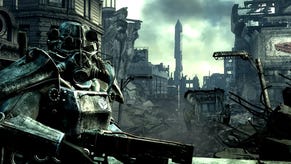
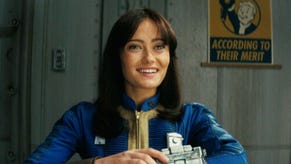
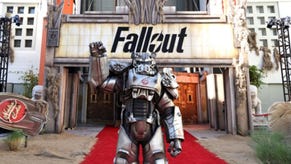
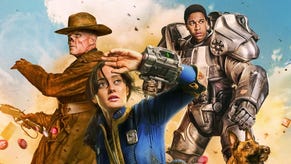


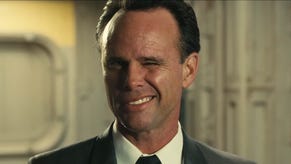
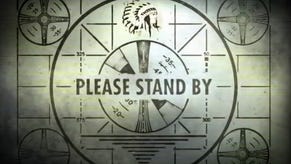

.png?width=291&height=164&fit=crop&quality=80&format=jpg&auto=webp)




.jpg?width=291&height=164&fit=crop&quality=80&format=jpg&auto=webp)
